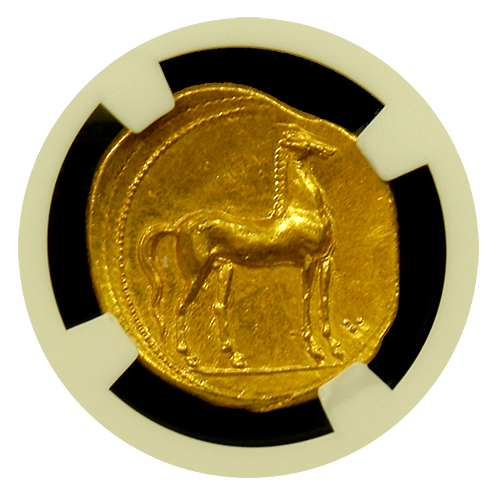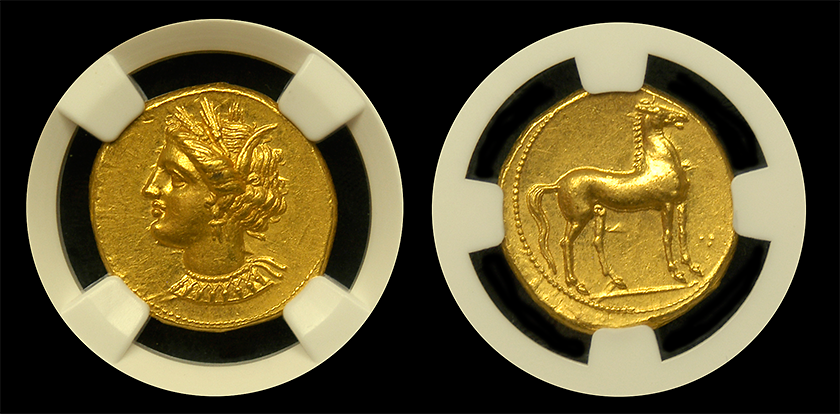Nestled along the northern coast of Africa, Zeugitana emerged as a region of historical significance during the reign of Carthage in c.350-320 BC. This era witnessed the zenith of Carthaginian power and influence, shaping the destiny of the Mediterranean landscape. Also, the ancient glory of Zeugitana is a captivating tale and a period that left an indelible mark on the region’s history.
The Rise of Carthaginian Supremacy
During c.350-320 BC, Carthage was at the height of its power, ruling over a vast maritime empire that spanned across the Mediterranean. With its strategic location, naval prowess, and robust economy, Carthage exerted significant influence over the lands it controlled. Zeugitana, a coastal region encompassing parts of modern-day Tunisia, was an integral part of Carthage’s dominion. This period marked an era of expansion and prosperity for both Carthage and Zeugitana.
Economic Prosperity and Cultural Flourish
Carthage’s rule brought about economic prosperity and cultural growth to Zeugitana. The region’s strategic location made it a crucial hub for trade and commerce. Its ports bustled with ships from various corners of the ancient world, carrying valuable goods and ideas. As a result, Zeugitana became a melting pot of cultures, where diverse traditions and knowledge intermingled. The flourishing arts, architecture, and trade routes all contributed to the cultural renaissance of the region.
Strategic Importance and Military Might
Zeugitana’s strategic significance was not lost on Carthage, which heavily fortified the region against potential rivals. Carthaginian military forces bolstered their defenses, ensuring the safety of their maritime routes and valuable resources. Zeugitana’s position as a key link between Carthage and other parts of their empire made it a vital asset. In fact, the military might of Carthage safeguarded the region’s stability and secured its role in the larger Carthaginian dominion.
Challenges and the Ebb of Power
The same factors that contributed to Carthage’s rise also sowed the seeds of its downfall. Especially, rivalries with other Mediterranean powers, most notably Rome, gradually escalated into conflicts that would redefine the course of history. The Punic Wars, spanning over a century, saw Carthage’s dominance erode. Additionally, Zeugitana, once a symbol of Carthaginian strength, bore witness to the challenges that eventually led to Carthage’s defeat and downfall.
Legacy and Enduring Influence
Despite its eventual decline, Carthage’s rule over Zeugitana left an indelible legacy. The cultural exchanges, economic growth, and military prowess of the region under Carthaginian rule shaped its identity for centuries to come. Furthermore, the traces of Carthaginian influence can still be seen in the art, architecture, and cultural practices of modern Tunisia. The legacy of Zeugitana serves as a testament to the lasting impact of Carthaginian dominion in the ancient world.
A Glimpse of Numismatic Heritage
 Amidst the historical tapestry of Zeugitana, we have a photo of one that stands as a testament to the rich numismatic heritage of the region. Indeed, this exquisite AV Stater pictured to the left, weighing 9.43 grams, elegantly captures the essence of its time. The obverse features the graceful figure of Tanit, a prominent deity in Carthaginian culture, embodying fertility and protection. On the reverse, a majestic horse stands strong, symbolizing strength and vitality.
Amidst the historical tapestry of Zeugitana, we have a photo of one that stands as a testament to the rich numismatic heritage of the region. Indeed, this exquisite AV Stater pictured to the left, weighing 9.43 grams, elegantly captures the essence of its time. The obverse features the graceful figure of Tanit, a prominent deity in Carthaginian culture, embodying fertility and protection. On the reverse, a majestic horse stands strong, symbolizing strength and vitality.
This coin, with its exceptional state of preservation, has earned accolades from experts. Moreover, it holds a Mint State grade with an additional star rating, boasting a remarkable strike of 5/5 and a surface rating of 4/5. Lastly, its fine style adds a touch of artistic finesse, as recognized by NGC. This coin serves as a tangible link to the era of Zeugitana’s influence and prosperity, showcasing the intricate blend of artistry, culture, and history that resonates through the ages.
Conclusion
The ancient glory of Zeugitana in c.350-320 BC stands as a testament to the intricate interplay between power, culture, and destiny. As we reflect on this period, we uncover a story of expansion, prosperity, and challenges that shaped the region’s narrative. The enduring legacy of Carthaginian rule continues to resonate through the ages, reminding us of the vibrant history of Zeugitana. In conclusion, their pivotal role in the ancient Mediterranean world remains a testament to their cultural and historical significance.


